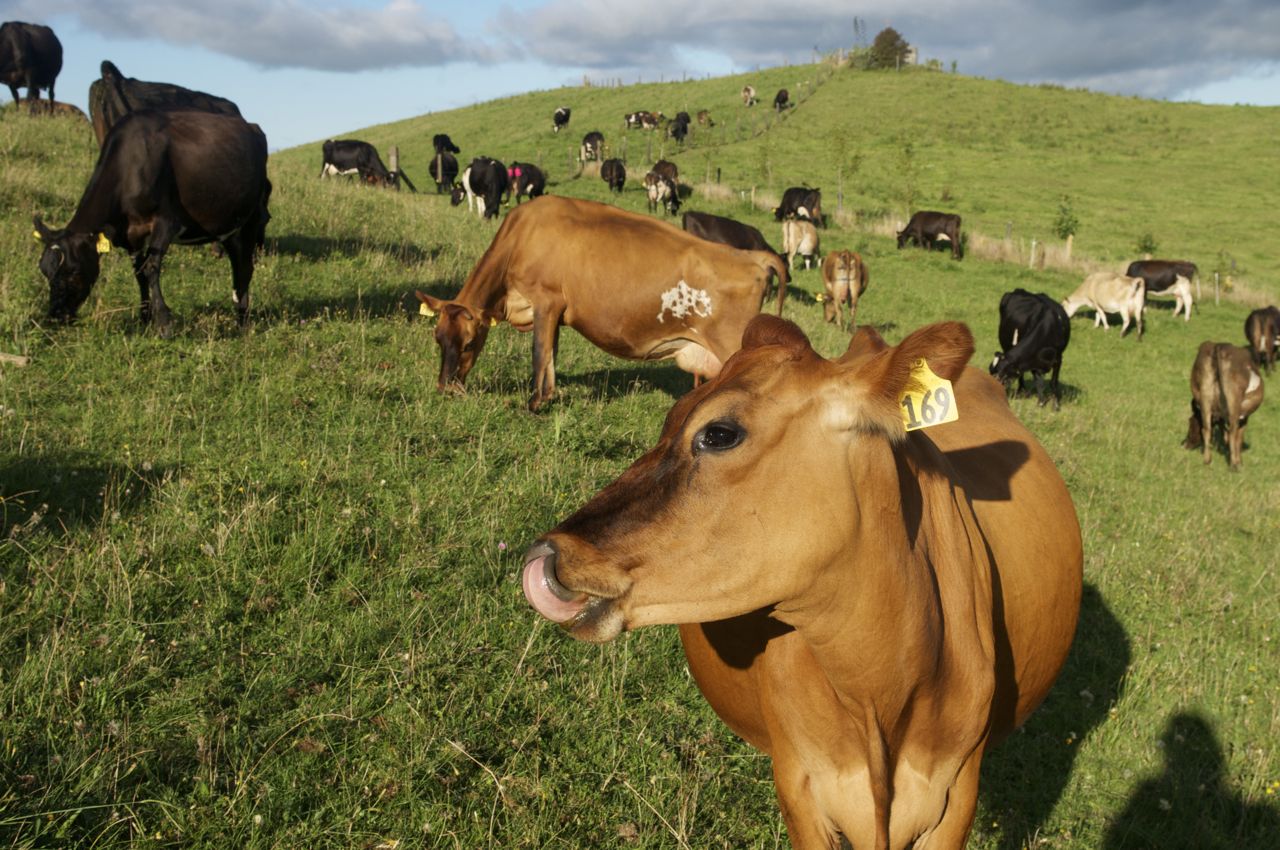China and New Zealand seal deal on organic standards
Happy cows on an organic dairy farm, New Zealand: their milk, and other organic products, will now have better access to Chinese markets thanks to the recent agreement.
Matthew Flynn, Flickr CC
On 14 November 2016, China and New Zealand signed a ‘landmark’ agreement in which each nation recognises the other’s standards on ‘organic’ products. Sun Dawei, head of the PRC’s Certification and Accreditation Administration, and Martyn Dunne, director-general of New Zealand's Ministry for Primary Industries (NZMPI), sealed the deal in Beijing.
A first for China, the agreement is expected to lead to an expansion in bilateral trade, and to give further impetus to China’s own organic industry.
It means that organic products exported from New Zealand into China will now come accompanied by a certificate from NZMPI, while goods exported from China to NZ will be certified by the Chinese administration, removing the need for lengthy checks at the products’ respective destinations.
According to NZMPI, the Mutual Recognition Arrangement for Certified Organic Products will bring greater assurance to consumers and support further growth in NZ’s organics industry, thanks to reduced compliance costs and greater certainty for exporters of organic produce.
NZMPI Plants, Food and Environment Director Peter Thomson told MSN recently that the Ministry for Primary Industries had assessed the Chinese system and found it to be robust.
“This new arrangement, and the assessment required to conclude it, provides MPI with knowledge and confidence in the supply of organic produce from China,” he said.
The mutual agreement will take effect from mid-2017 and will exclude aquaculture, apiculture and textiles.
NZMPI notes that all imports into New Zealand will still need to meet national requirements for food safety and biosecurity.
What’s the usual process for organic goods entering China?
Generally, Chinese organic certification systems and those of foreign nations are not mutually recognised. Organic products not certified by a Chinese certifying body can’t be labelled ‘organic’ or anything similar.
To ensure quality and compliance, Chinese authorities verify consignments in accordance with the PRC’s New Certification Regulations on Domestic Organic Products.
Any imported products either declared or labelled ‘organic’ go through a rigorous ‘import verification process.
If organic products are imported into China without a Chinese organic certificate but display ‘organic’ on their packaging, labels, instructions or promotional materials, this will be reported as a ‘major issue’, says Austrade. If they can’t be modified to allow for them to be legally imported as ‘conventional’ produce, such goods will be destroyed or re-exported.
Is China’s organic sector closing its ‘credibility gap’?
Despite China’s economic slowdown, the nation’s organic sector has grown exponentially in recent years, with organic dairy products, wine, rice and vegetables leading the pack. In 2015, total sales of ‘organic’ goods stood at 60 billion yuan (US$8.78 billion), double the sales of 2013.
With domestic demand for safe, clean products and for organic foods and beverages continuing to grow, China is poised to become the world's largest organics market over the next decade. And with total organic agricultural acreage second only to Australia's, the PRC could soon become the world's largest producer of organic produce, too.
In the past, China has faced obstacles in forging mutual recognition agreements on organic standards with other countries – principally because its own organic industry lacked credibility thanks to the questionable practices of some Chinese enterprises, including major food scares and numerous instances of conventional products sold fraudulently as 'organic' ones.
The PRC has now put more stringent regulations in place to govern its burgeoning domestic organic industry: enterprises caught faking organic processes, for instance, have their certification revoked and may have to wait up to five years to reapply.
According to Wang Maohua, an official overseeing food and agricultural product certification at the Certification and Accreditation Administration, China’s recent increased vigilance with regard to its organic enterprises is starting to pay off.
Currently, the PRC is negotiating agreements on mutual recognition of organic food certification with Denmark, the United Kingdom, Thailand and the European Union. It expects to reach an agreement with Denmark in under two years.
What’s the deal with Australian organic goods exported to China?
Currently, Australia exports certified-organic produce including beef, wine, milk, dried fruits, nuts, citrus, wheat flour and coffee into Chinese markets.
Typically, it takes 3-6 months and A$10,000+ to apply for and get a Chinese organic certificate, Austrade says, but Australian-made organic products, particularly beef, wine and infant formula, attract a premium in China that may make it worthwhile.
A Chinese organic certificate can be verified through China’s Food and Agriculture Products Certification Information System (CNCA), which lists 25 certification agencies in China approved by the PRC Administration to certify organic labelling.
Both Australian Certified Organic (ACO) (ACO media release) and the National Association for Sustainable Agriculture Australia Limited (NASSA) (NASSA media release) have signed agreements with Chinese organic certification group the Organic Food Development and Certification Centre of China (OFDC), and can provide Australian-certified organic producers with more streamlined, cost-effective packages for certified-organic food certificate application.
More information
For more information, see Austrade's guide: 'Exporting food and beverage to China'.
Read more about the Chinese market for organic imported produce.

